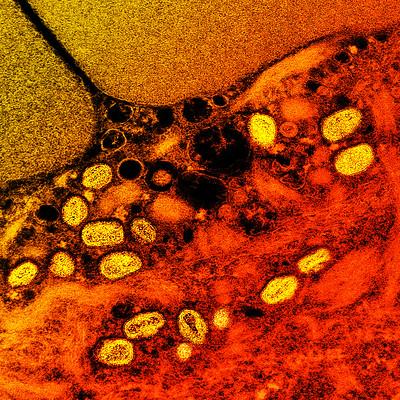Use of doxycycline post-exposure prophylaxis (doxy-PEP) over 6 months was associated with an increase in the proportion and expression of tetracycline antimicrobial resistance genes (ARGs), researchers reported yesterday in Nature Medicine.
In the study, a team led by scientists at the University of California-San Francisco (UCSF) conducted metagenomic DNA sequencing on rectal swabs collected from participants in the DoxyPEP trial, which found that a one-time dose of doxycycline within 72 hours of unprotected sex reduced the incidence of chlamydia, syphilis, and gonorrhea by 88%, 87%, and 55%, respectively.
Doxy-PEP is now recommended by the Centers for Disease Control and Prevention for populations at high-risk for sexually transmitted infections (STIs), but concerns remain that routine use of doxycycline could promote resistance and negatively impact the gut microbiome.
Dose-dependent increases in tetracycline ARGs
Analysis of rectal swabs collected from 100 trial participants who received doxy-PEP and 50 who received placebo at enrollment and at 6 months found that the proportional mass of tetracycline ARGs increased in the doxy-PEP users and that exposure to a higher number of doxycycline doses correlated with proportional enrichment of tetracycline ARGs. But doxy-PEP did not appear to have an impact on the overall composition of bacterial communities in the gut microbiome.
"While we found no major changes to the community of gut bacteria in doxy-PEP users, we saw that doxy-PEP users over time had increasing amounts of tetracycline resistance genes present in their gut," first author Victoria T. Chu, MD, MPH, an assistant professor of pediatrics at UCSF, said in a university press release. "It also appeared to be dose dependent, meaning the more doxy-PEP they used, the larger the increase was."
The authors add that more research is needed to figure out the clinical implications of their findings, including population-based surveillance to monitor for the emergence of tetracycline resistance. But for now, they say, doxy-PEP remains an important tool for reducing STIs.
"Right now, it looks like the pros outweigh the cons," senior author Chaz Langelier, MD, PhD, said. "Especially given the dramatic rise in STIs, in particular syphilis, over the past decade."

















